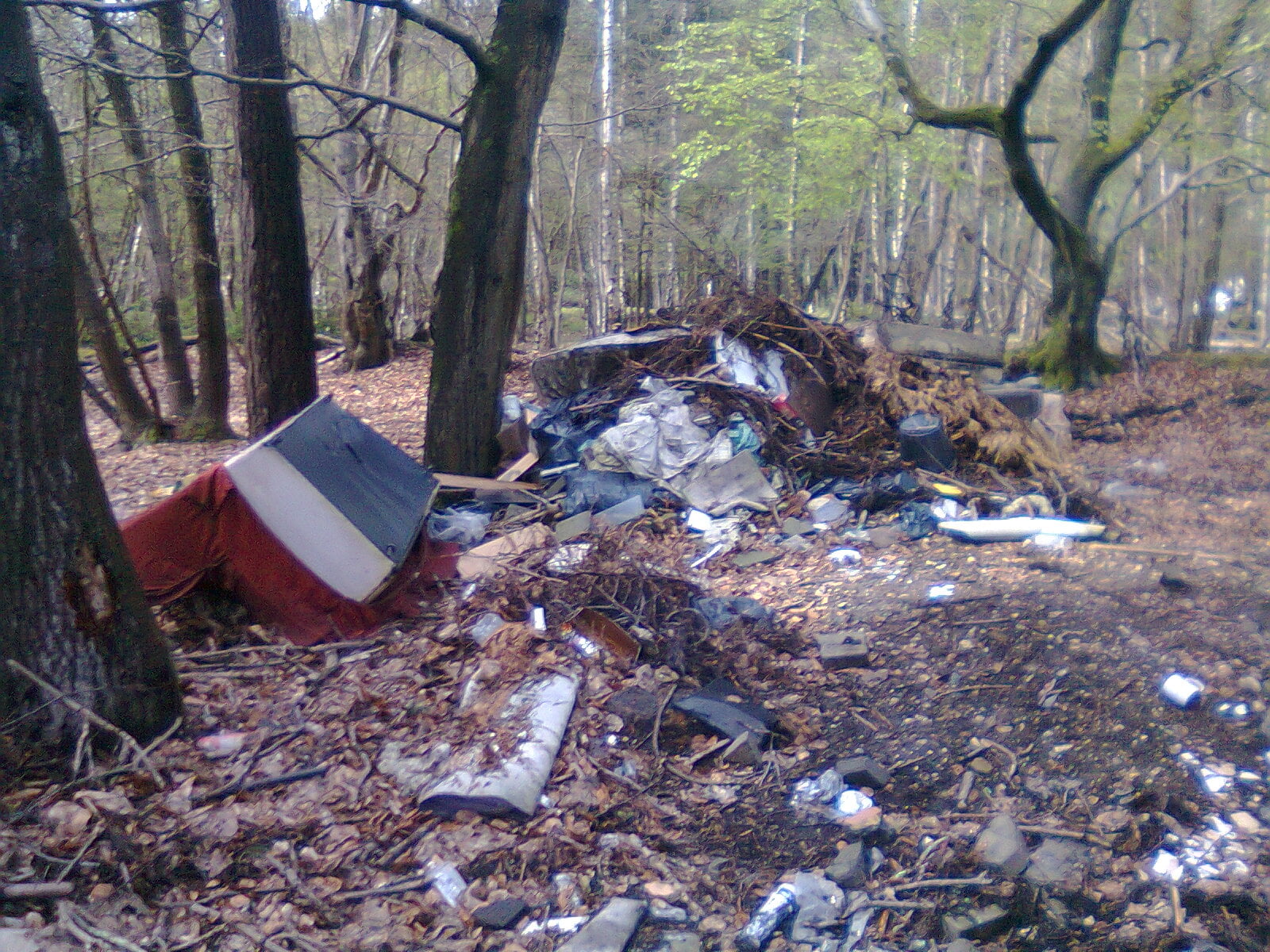Removal and recycling of fly-tipped waste for private landowners and local councils.
Contact RJS Waste Management to request a quote for the disposal of fly-tipped waste that meets government regulations and will help protect your local environment.
Fly-tipped Waste Collection, Recycling and Disposal Services
Fly-tipping is the illegal dumping of liquid or solid waste on land or in water. The waste is usually dumped to avoid disposal costs. Areas of land that are typically affected by fly-tipping include lay-bys, private land, derelict land and woodlands. This means that fly-tipped waste can affect public health, the environment, businesses and landowners alike.
The most common kinds of fly-tipping are domestic waste such as:
- Construction waste
- Tyres and mechanical waste
- Household waste such as sofas and mattresses
However, fly-tipped waste can be hazardous such as:
- Clinical waste such as pharmaceutical products and syringes
- Hazardous construction waste such as concrete additives and paints
- Asbestos Containing Materials (ACMs)
- Waste Electrical and Electronic Equipment (WEEE) such as fridges
It is this hazardous fly-tipped waste that the skilled and experienced RJS Waste Management UK team can help you with. We can assess, collect and dispose of your waste professionally, in line with hazardous waste regulations and at a competitive price.
Why do people fly-tip?
In recent years, the number of fly-tipping incidents has soared due to a significant increase in waste collections by non-licensed workers and a rise in landfill tax for the disposal of waste. Landfill tax is included in your council tax bill for household rubbish but businesses must use a registered waste carrier who is charged a levy when disposing of commercial waste.
Fly-tipping facts: the cost
In England, Wales and Scotland the main legislation covering disposal of waste is the Environmental Protection Act 1990 (EPA 1990).
Cleaning up fly-tipped waste costs councils millions of pounds each year. Organisations that suffer these clear up costs are the Forestry Commission and the Highways Agency, as well as other public and private organisations.
Fly-tipping undermines legitimate waste management companies who work responsibly to adhere to the law when disposing of commercial waste. So-called “cowboy” companies that do not follow legislation leave themselves open to large fines and, in the worst-case scenario, a custodial sentence.
Illegally dumped hazardous waste has a negative effect on the environment. Syringes, chemical waste and other toxic wastes can present a risk to human health and can harm wildlife and farm animals. This might be from direct contact at the site of the fly-tipped waste or by the waste getting into a nearby water source. Also, waste like furniture and tyres can be fire hazards in wooded areas.
Fly-tipping is a criminal offence that affects the appeal of an area and the quality of life for people living there. Dumped waste can have a detrimental impact on local businesses and future investment within that area too.

